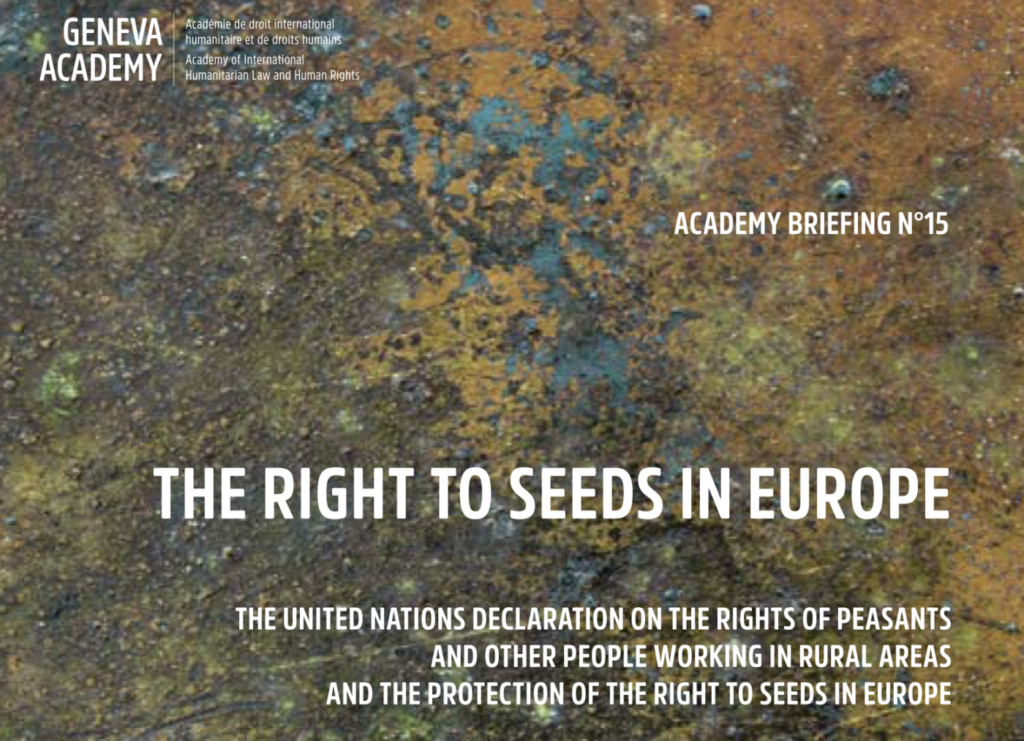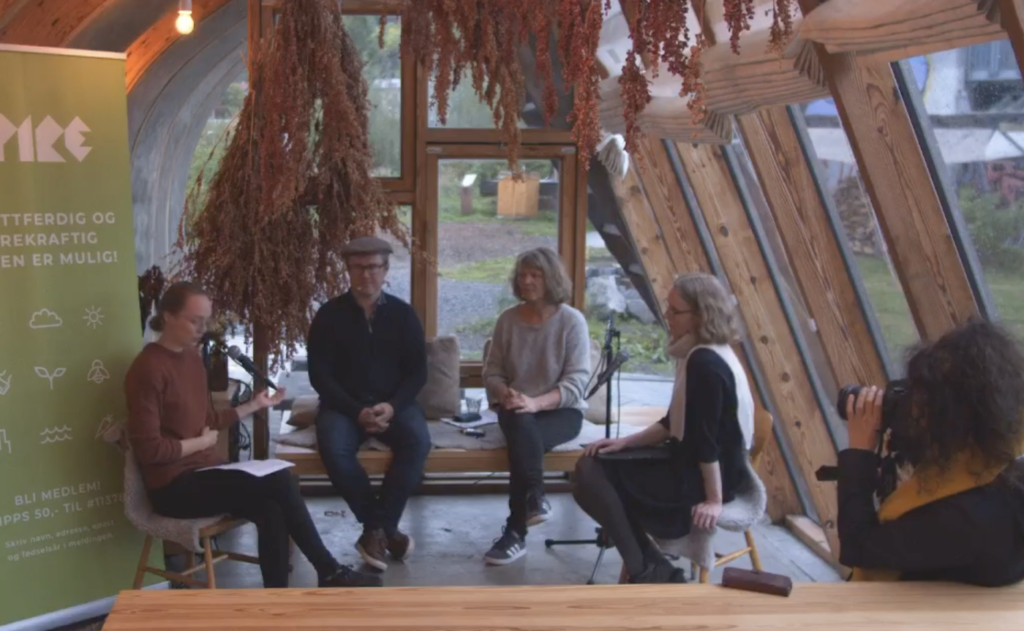Most people I talk to are unaware that the UN General Assembly adopted “The Declaration on the Rights of Peasants” (UNDROP) in December 2018. The declaration aims, among other things, to improve living conditions and strengthen the food sovereignty of peasants in the fight against climate change and aims for the preservation of biodiversity. Through the Declaration, peasants’ rights to save, use, share and sell seeds that they themselves have produced are adopted as a human right.
These human rights had already been established in the International Treaty on Plant Genetic Resources for Food and Agriculture, which came into force in 2004. But the Plant Treaty is not as clear as UNDROP where the right to sell seeds now takes precedence over rights that protect patents on seeds.
In 2008 La Via Campesina, a network of peasant organizations that is one of the world’s largest transnational social movements, adopted its Declaration on the Rights of Peasants. The Human Rights Council decided in September 2012 to create an open-ended intergovernmental working group to negotiate the UNDROP. Here is a full rapport of the key points of UNDROP and its history.
In Norway, almost no vegetable seeds are produced currently. It is simply not profitable as we compete with major international seed producers. Thus, almost all vegetable seeds come from countries further south. This makes Norway vulnerable from a food safety perspective. Considering that due to global warming we will have to adapt varieties to the distinctive light and other climatic conditions that we have in the Nordic countries, it is a serious situation that we have ended up in where we are not fulfilling the mission statement of Norways seed law which states that “the regulations will also contribute to in situ conservation and sustainable use of plant genetic resources“.
In Norway, the Norwegian Food Safety Authority administers regulations on seeds, which aims to ensure the production and marketing of seeds with the best possible health and quality. The regulations should also contribute to the conservation and sustainable use of plant genetic resources and be aligned with EU legislation on seed.
In recent decades, community gene banks have experienced exponential growth globally in response to conventional seed production models that have led to a drastic reduction in genetic diversity in the world. Community seed banks work to safeguard the diversity of varieties that we have inherited from the past, which in many cases almost disappeared. There are over 130 community seed banks in Europe where Arche Noah in Austria is the largest with 15,000 members. In the Nordic region there are between 500 and 1000 members per country where about 10% of the members work actively on seed saving.
In Denmark, our sister organization Frøsamlerne succeeded in changing the interpretation of the Danish seed regulations. This change means that the sale of vegetable seeds to individuals (ie not aimed at agriculture) is exempted from the seed regulation. In Denmark, this happened in 2015.
Outside the EU we can also see a similar trend. Already in 1998, the Swiss government amended the Seeds Act to allow seed sales of local “niche varieties” which are traditional varieties of vegetables. They did this through a special dispensation from the Seed Act which says that seeds of local varieties can be sold or given away free of charge without being registered or certified in a conventional way, as long as they satisfy regular quality control.
I spoke about these and other related issues to the future of Norways food safety in this discussion at the center for KVANN´s Urban Guild at Losæter in Oslo recently. Click here for the video file.



